
Welcome
For the 2021-2022 graduate admissions cycle, the University of Chicago English Department is accepting only applicants planning to focus on British, American, and/or Anglophone texts and archives produced between the Middle Ages and the year 1900. The department understands its current areas of strength and interest in these fields to include the study of race, migration, empire and colonialism, intercultural exchange, the history of science and philosophy, longue-durée conceptual history, performance studies, and the body or embodiment (encompassing discourses of race, gender, sex, species, or ability). Comparative and multilingual approaches to literature are welcome, as are students from international and diverse backgrounds.
For comprehensive information about admissions requirements and procedures, see the University of Chicago Humanities Division's Admissions webpage and also the Division's Online Application webpage. All applications must be completed online.
The Autumn 2022 application cycle is closed.
Events and Highlights
Chicago is rapidly becoming an important center for Early Modern Critical Race Studies.
In 2021, our department co-sponsored the visiting artist lecture series Black Baroque. The event featured Black theatre-makers who work with, against, and through Baroque culture in the contemporary historical moment. (Season 1 with Bintoue Dembélé, Keith Hamilton Cobb, Debra Ann Byrd is available online). Students enrolled in Noémie Ndiaye's spring course “Black Shakespeare” launched the “Black Shakespeare(ans)” Database, an ongoing project meant to grow over the years. In 2023, the University of Chicago will host a RaceB4Race® symposium, and our department is organizing a companion exhibition with our partner institution, the Newberry Library. More information forthcoming in September.
Medieval Studies at the University of Chicago is thriving in its interdisciplinarity. One of the longest running workshops on campus, the Medieval Studies workshop offers graduate students and faculty a regular opportunity to share work in progress. The Lexicon Project, now in its third year, is a working group based in the Center for the Study of Gender and Sexuality that provides an opportunity to read and discuss scholarship on embodiment in the Middle Ages as well as the various ideologies that shaped medieval embodiment, including sex, race, religion, and sexual desire. And last year we introduced a new lecture series supported by a gift from Faizal Syed. Graduate students are active in all of these projects and have the opportunity to take a range of exciting courses across the university.
The department is also home to a cluster of scholars interested in the intersections between human migration and literature. We offer graduate courses (e.g. Josephine McDonagh’s “On Moving and Being Moved”), and a series of international conferences on migration in the long eighteenth century (e.g. “Exodus and Exile: Migrants, Refugees and Asylum Seekers, 1750-1850,” see Link to Exodus and Exile). The latest will be a collaboration with Hong Kong University in December 2021. An informal reading group of graduates and faculty discusses migration and poetry, and has hosted readings by migrant poets. Another highlight is the 2021 Modernist Studies Association Conference (hosted in Chicago and directed by Maud Ellmann) on the theme of Migration. This will involve early period scholars of migration in a panel entitled “Why Migration? Why Not? Migration and its Discontents”.
Workshops, Working Groups, Projects, and Centers
Below is a growing list of groups where our students and faculty are involved.
Frequently Asked Questions
Q: Should I apply this year if my research interests are outside of the disciplinary focus for this year’s application cycle?
No. For the application cycle 2021-22 the department is only considering the applications of students planning to focus on British, American, and/or Anglophone texts and archives produced between the Middle Ages and the year 1900. However, if your interests include later periods in addition to primarily pre-1900 areas of study we would be interested in considering your application.
Q: What if I have research interests that extend beyond the disciplinary focus for this year’s application cycle?
We welcome applicants whose intellectual projects engage areas of study beyond traditional historical periods. In addition to historical periods, our faculty and graduate students work on a wide range of subfields, geographical areas, languages, and objects. Many members of our department work on trans-historical research areas such as medical humanities, history of the body, and migration studies. Furthermore, the University of Chicago English Department has a strong commitment to interdisciplinary research and methods. Faculty have training in a number of disciplinary formations, including Performance Studies, Cultural Studies, American Studies, African American Studies, and Gender and Sexuality Studies. Many of our students and faculty work in collaboration with other departments and centers on campus and in the greater Chicago area.
Q: Will enrolled students be able to take courses and work with faculty outside of the research area specified in the admissions application?
Yes. New students will benefit from the robust array of pre-1900 faculty and courses within the department but also from the entire departmental faculty, who have unanimously supported this admissions initiative and are uniformly committed to support the thriving of all of our graduate students, this year and thereafter. In addition, many of our students do coursework in other departments such as History, Cinema and Media Studies, Comparative Literature, etc.
Q: Will this year’s focus apply to future admissions cycles?
No. This year’s focus applies to the admissions cycle for the Autumn 2022 application cycle only.
Q: What kinds of courses are offered for graduate students?
For a list of current course offerings, please see our course catalog.
Meet the Faculty
|
Medieval |
|
| Early Modern | Timothy Harrison | Ellen MacKay | Noemie Ndiaye | Benjamin Saltzman | Joshua Scodel | |
|
18th/19th Century |
Timothy Campbell | James Chandler | Alexis Chema | Emily Coit | Frances Ferguson | Elaine Hadley | Ellen MacKay | Josephine McDonagh | Benjamin Morgan | Heather Keenleyside | WJT Mitchell | Eric Slauter | Christopher Taylor | SJ Zhang |
Timothy Campbell
Timothy Campbell: My research focuses upon the literature and culture of eighteenth-century and Romantic Britain, and especially upon the visual-cultural and consumer-material practices of the age that helped reshape literature into new and long-enduring forms. I also have broad interests in the history and theory of fashion, in problems of historical method in literary studies, and in the forms of historiographical writing. In recent work I have addressed subjects ranging from the history of the fashion plate to Romantic antiquarianism, and from the fashionable, eighteenth-century portraiture of Sir Joshua Reynolds to the present-day conceptual dress art of Christian Boltanski.
James Chandler
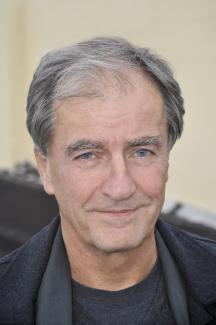
James Chandler: My research and teaching interests include the Romantic movement; the study of lyric poetry; the history of the novel; relations between politics and literature, history and criticism; the Scottish Enlightenment; modern Irish literature and culture; the sentimental mode; cinema studies; and the history of humanities disciplines.
Alexis Chema
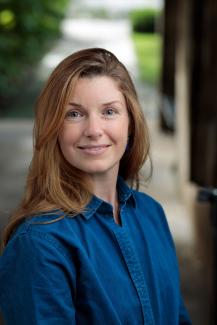
Alexis Chema: I specialize in Romantic literature and culture, with particular interest in poetry, visual art, and the civic functions they have been engaged to serve. The book I am writing, Fascinating Graces: Poetry and the Arts of Communication, is about changes to the public sphere over the eighteenth and nineteenth centuries and the impacts these changes had on poetry—who wrote and read it, how it circulated, and, most of all, on how matters of language and style adapt to the perceived conditions of mass reading.
Emily Coit
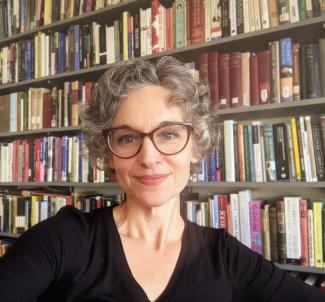
Emily Coit: I specialize in transatlantic literary and intellectual history. My teaching and research focus on conversations about education, citizenship, and democracy in the US and Britain during the nineteenth and early twentieth centuries. I'm especially interested in the histories of higher education, whiteness, and feminism.
Frances Ferguson
Frances Ferguson: I work primarily on eighteenth and early nineteenth century literature. Some years back I published "Rape and the Rise of the Novel" on Richardson's Clarissa and I have written more recently on topics like pornography, education, and literary persuasion.
Recently I taught a graduate course called "Poetic Realism" about late eighteenth and early nineteenth century poetry that aimed to capture the subjects and rhythms of ordinary life and one called "Hymns" in which read the Psalms and eighteenth-century congregational hymns to think about the importance of the rise of the congregational hymn as a literary form. In fall 2021 I will teach a course focused on Samuel Richardson's Clarissa, which will be open to MAPH and PhD students.
Elaine Hadley
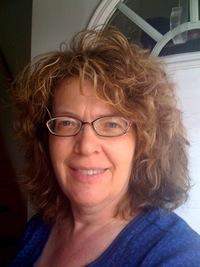
Elaine Hadley: I teach and write about nineteenth-century British culture, a period that has generously left behind a wide range of materials to examine. I've been especially committed in recent years to thinking about popular culture broadly defined (theater, journalism, cheap fiction) and political culture, especially liberalism as a social formation.
Timothy Harrison

Timothy Harrison: I am the author of Coming To: Consciousness and Natality in Early Modern England (University of Chicago Press, 2020). My current research focuses on the relationship between Renaissance and early modern literary texs, the first-person perspective, and the history of concepts across languages and cultures. I have taught such graduate courses as: The Uses of Fiction: Poetry and Philosophy in Early Modernity; Early Modern Natality; The Being of Effort in Early Modernity; and Milton and the Literature of Origins.
Heather Keenleyside
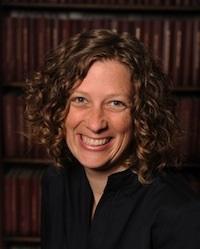
Heather Keenleyside: My teaching and research interests center on eighteenth-century literature (including the novel, poetry, philosophy, natural history, and children’s literature), as well as on animal studies, intellectual history, and the history of criticism.
Ellen MacKay
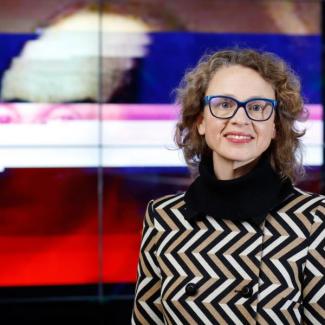
Ellen MacKay: As a specialist in theatre in performance, I focus on events and conditions that blur the line between representation and enactment. My first book, Persecution, Plague and Fire: Fugitive Histories of the Stage in Early Modern England, shows how the playhouse’s reputation as a place where nothing actually happens makes theatre capable of reducing its age to nothing. I am currently researching the forms of collective life said to bloom under theatrical regimes of immersion. I lead a digital project, Beshrew Me! that identifies, illustrates and glosses the techniques of supremacy and subordination that are used to tame the wild and/or disobedient.
Josephine McDonagh
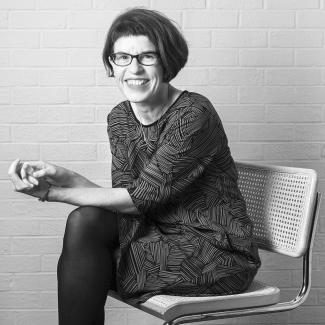
Josephine McDonagh: I focus on 19th-century British and colonial literature, in the context of globalization. Recent and ongoing work is on migration. My new book, Literature in a Time of Migration: British Fiction and the Movement of People, 1815-1876 (Oxford University Press), came out in June. I'm also interested in the global circulation of books and things, and the metropolitan and provincial cultures of empire.
Mark Miller
Mark Miller: My work is situated historically in late-medieval literature and culture, and conceptually in the intersections of psychoanalysis, feminism, and queer theory with ethics, theory of action, and philosophical psychology. My book Philosophical Chaucer: Love, Sex, and Agency in the Canterbury Tales (Cambridge University Press, 2004) investigates the ways Chaucer's philosophical interests can help us read his representations of gender and sexuality; one of its main concerns is to understand the often tortured logics of erotic desire and romantic love.
WJT Mitchell
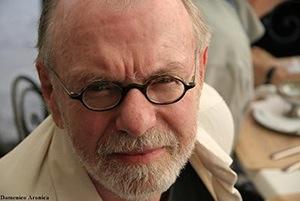
W.J.T. Mitchell: I teach in both the English and the Art History departments and edit the interdisciplinary journal, Critical Inquiry, a quarterly devoted to critical theory in the arts and human sciences. I work particularly on the history and theories of media, visual art, and literature, from the eighteenth century to the present. My work explores the relations of visual and verbal representations in the culture and iconology (the study of images across the media).
Benjamin Morgan
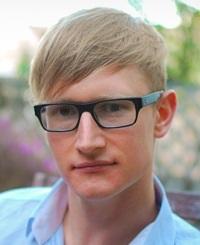
Benjamin Morgan: My research and teaching focus on literature, science, and aesthetics in the Victorian period and early twentieth century. My particular areas of interest include nineteenth-century sciences of mind and emotion; aestheticism and decadence; and speculative and science fiction. I also write about topics in the environmental humanities including extinction, energy cultures, and the literary history of climate change. My approach is oriented by critical traditions in aesthetic theory, affect theory, and science studies.
Noémie Ndiaye
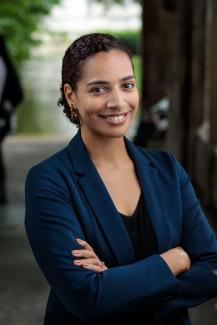
Noémie Ndiaye: I am the author of Scripts of Blackness: Early Modern Performance Culture and the Making of Race (forthcoming with University of Pennsylvania Press, 2022), the co-editor (with Lia Markey) of the forthcoming RaceB4Race® volume Seeing Race Before Race: Visual Culture and the Racial Matrix in the Pre-modern World (ACMRS Press, 2023), and the guest editor of a forthcoming special issue of Shakespeare Quarterly on Shakespeare studies and Early Modern Critical Race Studies (2023).
Julie Orlemanski
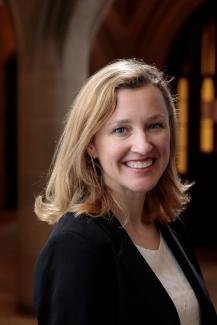
Julie Orlemanski: My research focuses on texts from the Middle Ages and the intersection of medieval thought with present-day theories and notions. My most recent project on Prosopopeia in Medieval Writing studies the movement from text to speech to imagined corporealization in medieval texts.
Benjamin Saltzman
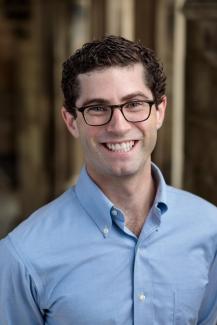
Benjamin Saltzman: I research and teach the literature and culture of early medieval England, focusing on texts written in Old English and Anglo-Latin roughly between the seventh century and the eleventh. My first book is entitled Bonds of Secrecy: Law, Spirituality, and the Literature of Concealment in Early Medieval England (Penn, 2019). I also work on and teach graduate courses around modernity’s engagements with the Middle Ages; I am coauthoring Thinking of the Medieval: Midcentury Intellectuals and the Middle Ages (Cambridge, forthcoming). And I am currently writing a new book: Gestures of Aversion, a study of looking away from suffering in premodern art and literature.
Joshua Scodel
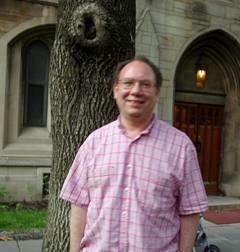
Joshua Scodel: My major field of research is sixteenth- and seventeenth-century English literary history in relation to intellectual, cultural, and political history. Special interests include early modern English literature's engagements with classical and Renaissance continental literature and philosophy; Renaissance genre theory and practice; and literary criticism's relation to literary practice, ancient to early modern.
Eric Slauter
Eric Slauter: My scholarship focuses chiefly on transformations in political thought and behavior in the eighteenth century. My first book, The State as a Work of Art: The Cultural Origins of the Constitution, examined the relation of culture to politics in revolutionary America. I was especially interested there in how the emergent state was challenged in its effort to sustain inalienable natural rights alongside slavery and to achieve political secularization at a moment of growing religious expression. In another book project, Natural Rights: A Cultural History, 1689-1789, I hope to explain how and why ordinary people came to believe they had rights before and through the Revolution.I specialize in early American cultural, intellectual, and literary history, with additional research and teaching interests in a range of fields and methods: legal history; the history of political thought; book history; visual and material culture studies; quantitative analysis; the history of slavery, abolition, and emancipation; labor history; environmental history; and Atlantic history.
Christopher Taylor
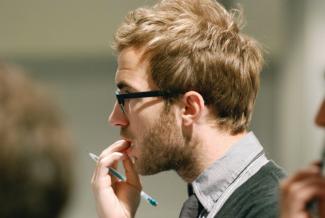
Christopher Taylor: My research and teaching focus on the hemispheric Americas in the nineteenth century. While the British West Indies is my primary area of focus, I am interested in how these islands were linked to worlds beyond the boundaries of the British Empire. Working at the edges of economic history, political theory, and literary studies, I study how West Indian creoles drew on the ideas and texts that circulated through these entangled worlds to develop norms and model polities opposed to slavery, economic liberalism, and expansionist imperialism.
SJ Zhang
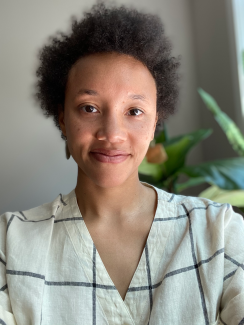
SJ Zhang: My research and teaching are both concerned with seventeenth through nineteenth-century archives of slavery and marronage in the United States and Caribbean. I am interested in how resistance practices and flight from enslavement by Black and Native individuals in the Caribbean and North America shaped textual and visual production in the colonial period. I teach transnational literary histories of slave and maroon narratives, constructions of gender, race and forms of bondage before 1850, as well as courses on archival theory and method.




